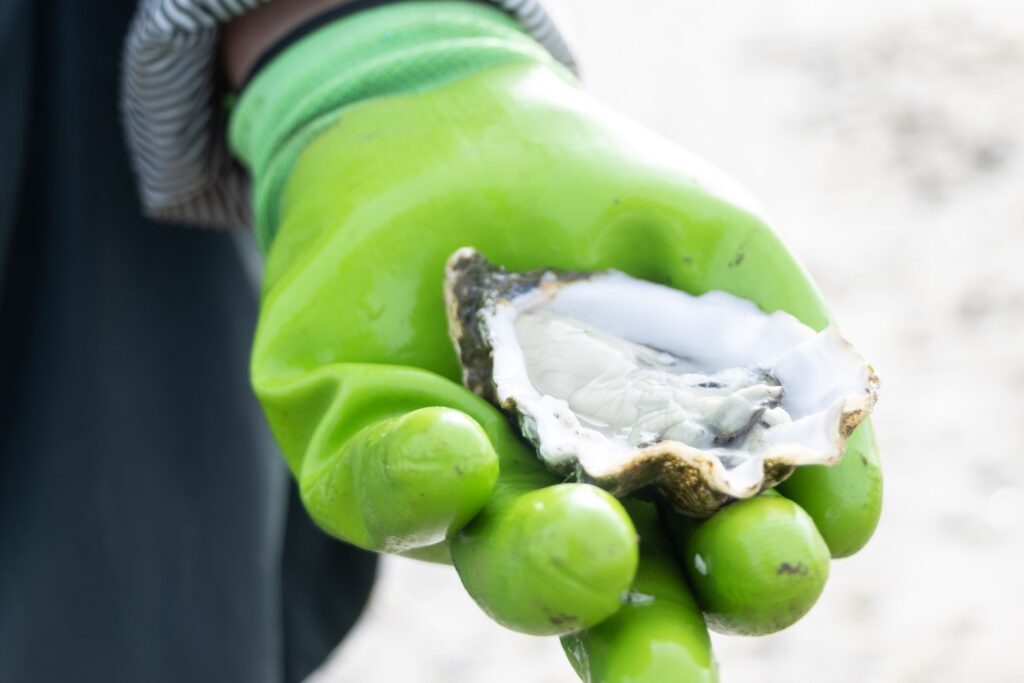Oyster production has been gaining ground in the Ria Formosa, in the Algarve, to the detriment of clams, which are losing income, leading producers to abandon or convert the activity, a sector official told Lusa.
José Florêncio, from Formosa – Cooperativa de Viveiristas da Ria Formosa, said that, although both productions currently have low business levels, clam producers find it more difficult for the product to grow and achieve the highest possible profitability.
“Clams have been losing ground because there has been a lot of oyster export. And people are not ready to wait two years for the clams to grow and have to turn somewhere else”, stated José Florêncio, referring to the investment in oyster production.
Oyster production “has grown a lot” in the Ria Formosa, which stretches from the coast of Vila Real de Santo António to Loulé, and this “should not happen”, because “some producers, when they are surrounded by oysters, say that the clams grow slower”, he considered.
“It’s not proven, but it makes some sense, because the oyster filters more than the clam”, he said, highlighting that “there are also other factors”, such as the lack of rain or renewal of the waters of the estuary, although there are no studies yet. on the subject and the carrying capacity of oysters in the Ria Formosa should have already been studied.
Lusa spoke with Ricardo Raimundo, who produces clams on the island of Armona, in Olhão, and with Eduardo Soares, who produces oysters in Tavira, and while the first complains about the loss of profitability, the second is satisfied with the growth that has been felt in the sector and looks to the future with “optimism”.
Ricardo Raimundo pointed out the low rainfall and lack of water oxygenation as likely factors for the poor growth of clams, but also highlighted the increase in oyster production as one of the causes of the loss of yield.
Asked about this possibility, Eduardo Soares admitted that the growth seen in recent years in oyster farming may be causing difficulties in clam production, but considered that it is not a unique factor and recalled that this bivalve was already being affected by other problems, such as mortality.
“I am very clear that, in any activity, whether agricultural or aquaculture, whenever we place more than two living beings in the same place, we change the ecosystem. And we are talking about thousands of oysters, placed in parks that were abandoned or were just for clams. I am interested and could put myself in the position of not commenting, but I am aware, as a producer, that it is very likely that there will be an influence on the growth and production of clams,” he said.
This producer highlighted, however, that “before there were difficulties” with clams and the increase in oyster production “is not the only factor” influencing the weak growth of the other species, since there are also “environmental issues”, as “the smallest rain, which brings less nutrients”, he exemplified.
Ricardo Raimundo acknowledged that, if the activity does not improve, he may in the future stop producing clams to dedicate himself to oysters, because “it reached 50.000 to 60.000 euros in sales” and, in the last year, “we did not reach at 30.000” euros.
“There are a lot of oysters in the Ria Formosa and, day by day, the nurseries have fewer and fewer clams, people are turning to oysters and I myself, if that is the case, in a year or so two, I will have to turn to oysters, because my productivity is increasingly weak”, he stated.
In oysters, Eduardo Soares said that sales “from November onwards fell a lot”, but pointed out market factors as causes, such as the lack of flow from French producers, which he hopes will be overcome to return to the growth that marked the activity since the end of the covid-19 pandemic.



















Comments